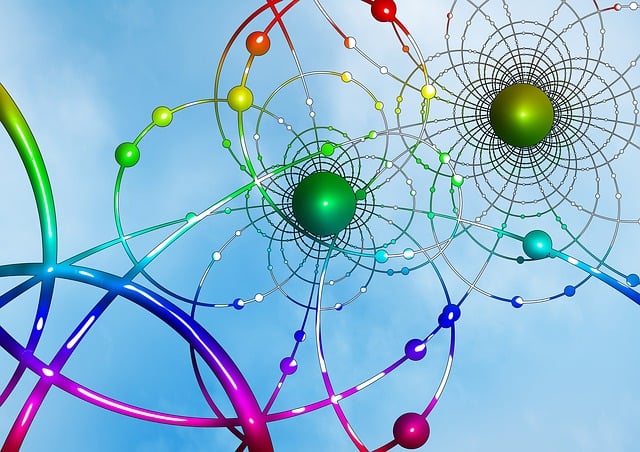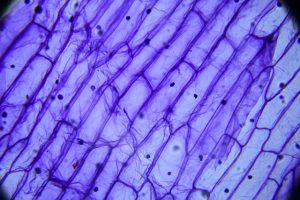Holistic Paths to Addiction Recovery: Mind, Body, and Nutrition
Holistic addiction recovery combines traditional and alternative therapies for addressing substance use disorders in a multifaceted approach. This comprehensive strategy includes evidence-based interventions like cognitive-behavioral therapy, dialectical…….

Holistic addiction recovery combines traditional and alternative therapies for addressing substance use disorders in a multifaceted approach. This comprehensive strategy includes evidence-based interventions like cognitive-behavioral therapy, dialectical behavior therapy, trauma healing techniques such as EMDR and somatic experiencing, and practices like meditation, yoga, and nutrition counseling to improve overall well-being and mental health. The program focuses on the psychological, social, and physical aspects of recovery, emphasizing self-awareness, emotional regulation, stress management, and personalized support for a balanced life post-recovery. It recognizes the importance of restoring bodily functions and neurochemical balance through a diet rich in essential nutrients like omega-3 fatty acids, antioxidants, and B vitamins, which are crucial for brain health and mood regulation during the recovery process. This integrated approach is designed to support lasting sobriety and positive life changes for individuals seeking addiction recovery.
Holistic addiction recovery represents a transformative approach that transcends traditional treatment modalities, offering a multifaceted strategy for sustainable sobriety. This article delves into the integrated methods that nurture the mind, body, and spirit, providing a comprehensive examination of their roles in the journey toward healing. From the pivotal importance of mental health to the therapeutic power of nutritional choices, physical activity, and mindfulness practices, each section unravels how these elements synergistically support recovery from addiction. We will explore how addressing trauma, incorporating integrative therapies like acupuncture, and establishing a supportive environment are critical components of a personalized holistic care plan. Furthermore, understanding the connection between spiritual practices and substance abuse recovery, along with overcoming co-occurring disorders, is essential for maintaining long-term recovery. Through case studies and real-life success stories, this article highlights the transformative potential of holistic addiction recovery, offering valuable resources and support for individuals embarking on this path.
- Understanding Holistic Addiction Recovery: A Comprehensive Overview
- The Role of Mental Health in Holistic Addiction Treatment
- Nutritional Strategies for Supporting Recovery from Addiction
Understanding Holistic Addiction Recovery: A Comprehensive Overview
Holistic addiction recovery encompasses a multifaceted approach that addresses the complex needs of individuals affected by substance use disorders. Unlike traditional models that often focus solely on abstinence, holistic approaches recognize that addiction is a multifaceted issue with deep-rooted psychological, social, and physical components. These comprehensive programs integrate evidence-based therapies with alternative and complementary practices such as meditation, yoga, nutrition counseling, and physical activity to promote overall well-being. The goal is to support the individual’s journey towards recovery by not only eliminating substance use but also by nurturing a healthier lifestyle that can serve as a foundation for long-term sobriety.
In this approach, mental health is paramount. Therapies like cognitive-behavioral therapy and dialectical behavior therapy are often employed to help individuals recognize and change patterns of thought and behavior that contribute to addiction. Additionally, holistic recovery may involve addressing past trauma through modalities such as eye movement desensitization and reprocessing (EMDR) or somatic experiencing to heal the underlying causes of substance abuse. By fostering a supportive environment that promotes self-awareness, emotional regulation, and stress management, holistic addiction recovery programs aim to equip individuals with the tools necessary to navigate life without relying on substances. This inclusive model acknowledges the unique needs of each person and seeks to provide tailored support for a more harmonious and balanced life post-recovery.
The Role of Mental Health in Holistic Addiction Treatment
Holistic addiction recovery recognizes the multifaceted nature of substance use disorders and their impact on an individual’s mental health. This comprehensive approach goes beyond the abstinence-based models by addressing the underlying psychological, emotional, and social factors that contribute to addiction. Mental health professionals play a pivotal role in this process, offering therapeutic interventions such as cognitive-behavioral therapy, mindfulness practices, and psychodynamic therapy to help individuals understand and manage their emotions and thought patterns. These treatments are designed to foster self-awareness, coping skills, and resilience, which are critical components for long-term recovery. Additionally, holistic programs often incorporate alternative therapies like yoga, meditation, and nutrition counseling to promote overall well-being and support the healing process. By integrating these diverse modalities, holistic addiction recovery aims to create a more sustainable and fulfilling path to healing for those affected by substance use disorders.
Nutritional Strategies for Supporting Recovery from Addiction
Nutritional strategies play a pivotal role in the holistic approach to addiction recovery. A balanced diet supports bodily functions and helps restore neurochemical balance, which can be disrupted by substance abuse. Nutrients such as omega-3 fatty acids, found in fish and flaxseeds, are known to improve brain health and have anti-inflammatory properties. Antioxidants, abundant in fruits and vegetables, help combat oxidative stress, a condition often exacerbated by drug and alcohol use. Incorporating these nutrients aids in detoxification and can mitigate withdrawal symptoms. Additionally, a diet rich in B vitamins, particularly B6, B12, and folate, is crucial for brain health and the regulation of mood-related neurotransmitters. It’s important for individuals in recovery to work with nutritionists or healthcare professionals who can tailor meal plans according to their specific needs and monitor progress during addiction recovery. These personalized nutritional strategies not only aid physical health but also contribute to emotional and psychological well-being, which are all integral components of a comprehensive recovery program.
Holistic addiction recovery is a multifaceted journey that transcends traditional treatment modalities, encompassing mental health, nutrition, and overall well-being. This article has delineated the various components of this approach, emphasizing their significance in achieving sustainable recovery. By integrating mental health care tailored to individual needs with targeted nutritional strategies, individuals can embark on a path that addresses the root causes of addiction, rather than merely its symptoms. The comprehensive overview presented underscores the effectiveness of a holistic framework for addiction recovery, offering a promising and hopeful outlook for those affected by this complex condition. As we continue to explore and refine these methods, it is clear that a holistic approach holds great potential in fostering robust, long-term recovery outcomes.









